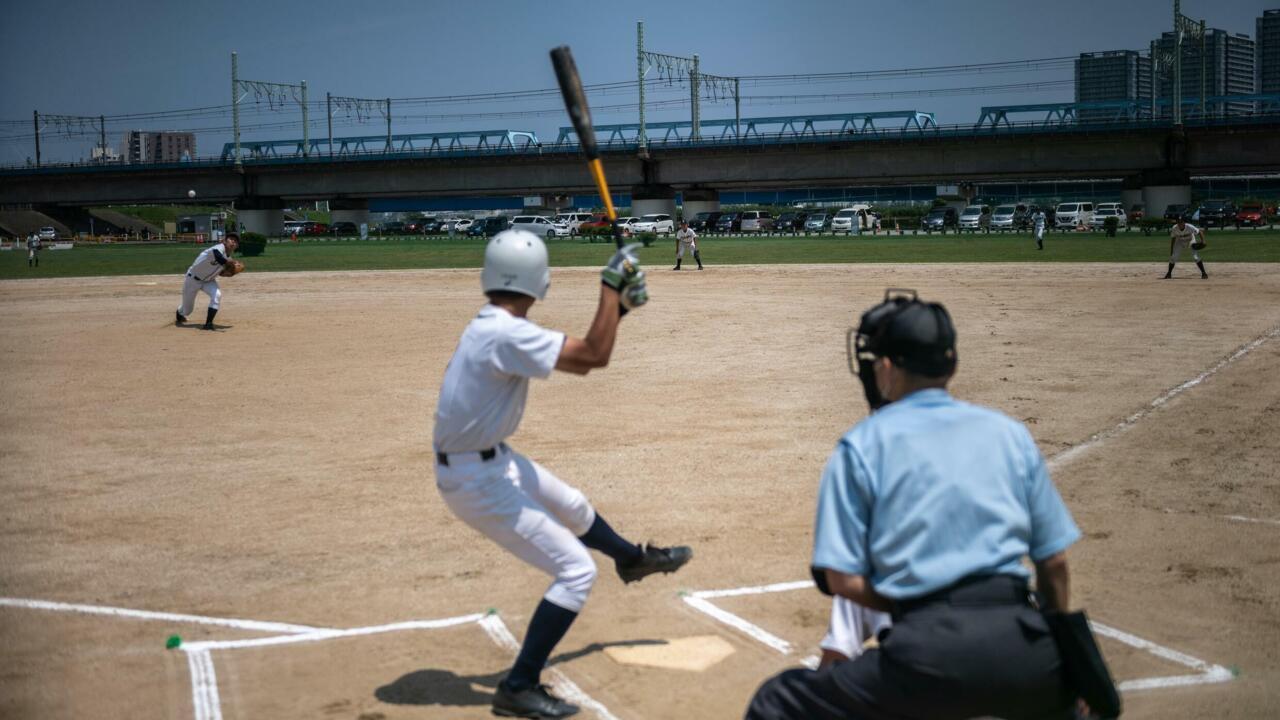Tokyo (AFP)
In spring and summer, the whole of Japan is passionate about a baseball competition that is neither professional nor even university.
This is high school baseball, in a country where this sport imported from the United States in the 19th century is almost a religion.
It is not surprising that baseball, absent from the Olympic Games since 2008, is making a comeback, as an additional sport, from Wednesday on the Olympic program for the Tokyo Games: it is by far the most popular in the Japanese archipelago where the children of every town and village devote themselves to it every weekend under the watchful eye of parents and passers-by.
More than a century after the sport was introduced by an English teacher from the United States, Japan made baseball its own.
In Japan, "all children play baseball," Itaru Kobayashi, a former Lotte Marines player from Chiba (a suburb of Tokyo), who became a teacher at Oberlin University in the Japanese capital, told AFP.
The sport "was invented in the United States, but we fell in love with it," he adds.
Baseball was first introduced as a school sport in 1872 by Tokyo teacher Horace Wilson, but became popular thanks to a game where a high school team from the capital beat a group of foreign residents in 1896.
- "Beat the Americans" -
The victory made headlines in Japan, igniting a wave of passion for the sport and other encounters against American teams.
# photo1
"These matches had symbolic importance, because the Japanese were behind (the Americans, Editor's note) in many aspects, such as trade and industry," said Robert Whiting, a baseball expert who lived in Japan for several decades.
"The message was: + if we can beat the Americans at their own game, we can surely overtake them in other areas +", he summarizes.
A professional league developed in the 1930s, but it was after World War II (where Japan was defeated by the United States) that baseball became the national pastime, with amateur baseball in particular being worshiped for. its "purity" because it is not driven by money.
This flame is still burning, as recently proved by the crowd of fans and cheerleaders gathered for a match of "Tokyo 6", a league of six of the main universities of the capital.
Fumihiko Kaneko, 31, had arrived four hours before, although in possession of a ticket.
"I've been a fan since I was a kid."
- "Uniformity and obedience to orders" -
But by far the most important event in baseball is the final of the biannual high school baseball tournament, nicknamed the Koshien, named after the stadium in western Japan where the final clash takes place.
# photo2
The Koshien has in the past gathered up to 50% of viewers in the Archipelago and the sound of its broadcast on the radio is as typical of the Japanese summer as the song of the cicadas.
This fervor also creates a less festive aspect, with lingering concerns about the intensity of training and the pressure on young players.
“I don't only have good memories of baseball,” said Takuya Honda, who practiced it for twelve years in school, but was never able to participate in Koshien.
Itaru Kobayashi thinks this sport is particularly suitable for Japan, because it is "like a ritual" and is characterized by "uniformity and obedience to orders": "Work as a team, be united by the team. We love it ".
The creation of the first professional football league in the 1990s raised fears for the popularity of baseball.
But after briefly declining, it started again, thanks in particular to the aura of stars like Shohei Ohtani, playing for the Los Angeles Angels in the prestigious Major League Baseball (MLB).
The Olympic tournament takes place in Fukushima (northeastern Japan) to draw attention to the reconstruction of the region after the disaster of March 2011.
But from a more patriotic point of view, one match in particular would fascinate the country according to Mr. Kobayashi: Japan - United States.
For Japanese baseball, he believes, beating the United States, "Japan's rival for a hundred years", will be "the ultimate goal".
© 2021 AFP

